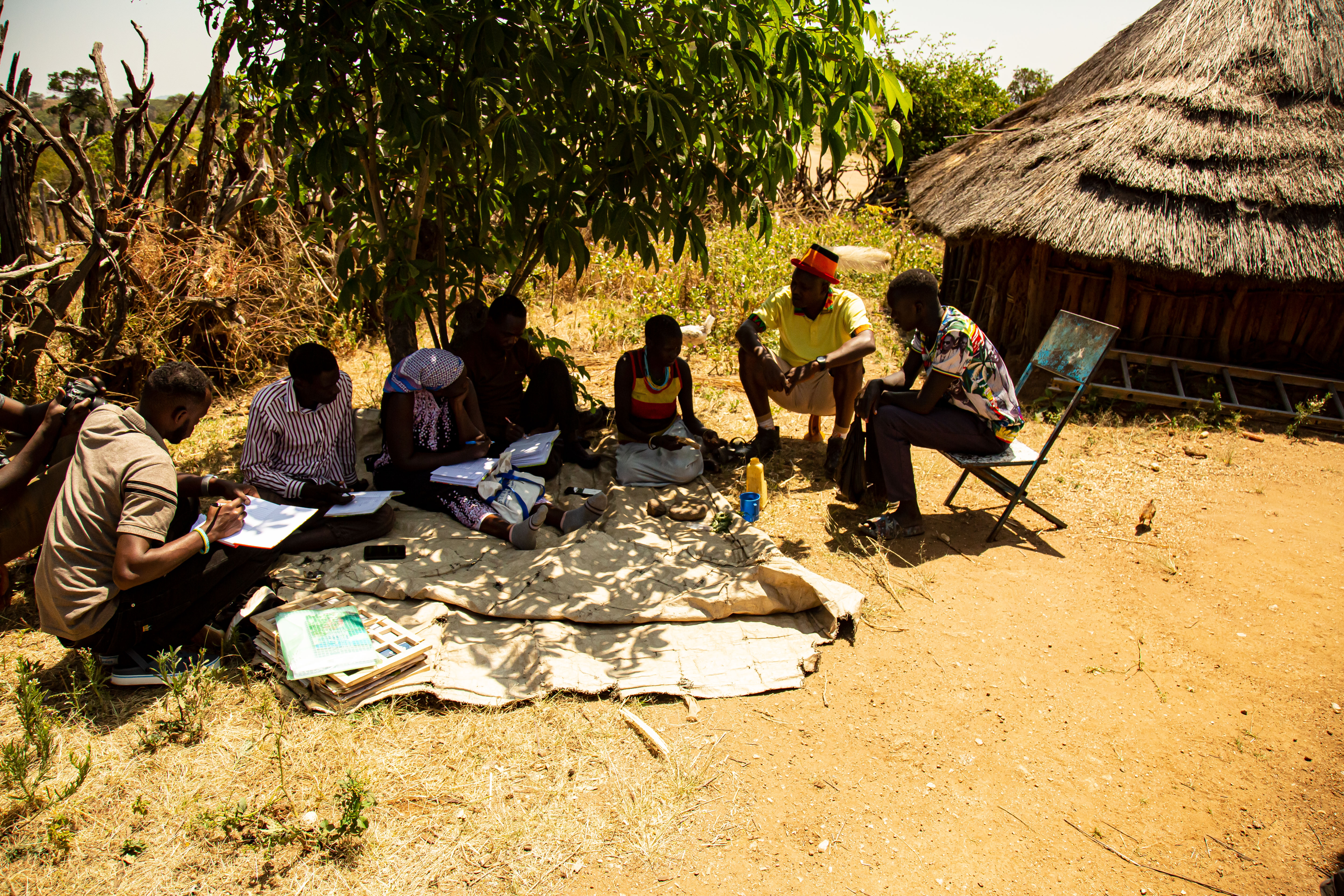Aims and transdisciplinary research questions
Objectives that we aim to achieve during the lifetime of the project
1. Put in place mechanisms for sustainable knowledge transfer and access to reliable medicinal plant knowledge to positively impact public health.
2. Enhance promotion of sustainable use, cultivation and protection of medicinal plants and biodiversity.
3. Empower traditional medicinal heritage, cultural identities, and resilience of communities in Uganda.
4. Disseminate reliable medicinal plant knowledge and practices for socio-economic benefit of communities.
Scientists doing fieldwork
Main research questions
A. How can reliable and relevant information on effective, safe, and sustainable use of medicinal plants be made available?
B. How have traditional medicinal knowledge and practices been transmitted in the past and present amongst healers and lay people in rural and urban settings and how can its continuity be ensured for future generations?
C. How can museums as institutions of social change and medicinal plant gardens best contribute to the promotion of traditional medicine as well as to cultivation / protection of medicinal plants for health care socio-economic benefit?
D. Can we sensitize for the significance of traditional medicine by juxtaposing traditional Ugandan with other traditional medicinal systems (including traditional Swiss medicinal practice and knowledge)? (Reciprocal approach).
Transdisciplinary research
The biomedical approach and traditional medicine overlap in many areas. Nevertheless, they operate within very different ideological frameworks and sometimes also focus on different ‘therapeutic areas’.
To ensure traditional medicine as part of future primary health care requires actors from different sectors to co-produce relevant knowledge, and a transdisciplinary approach whereby academic disciplines and non-academic fields work jointly to develop novel and innovative solutions (Berger-Gonzalez 2016, Leeuw 2017). Current social science debates revolve around the question of whether and how the two different medical paradigms of biomedical public health and traditional medicine can be integrated, avoiding one-sidedly subordinating traditional medicinal knowledge and practice to the orthodox, scientific paradigm and to considering it merely as pool of isolated information to be exploited (Konadu 2007, Langwick 2011, Obrist and Van Euwijk 2020). Cooperation seems feasible “if both systems acknowledge and accept their areas of expertise and limitation, perspective and cultural foundations from which they operate” (Konadu 2007: 177). Julie Laplante advocates that we should bring “indigenous medicine into conversation with biomedical ways of making medicine work, not as exotica […] but as contemporary practices that challenge and feed into current ways of knowing in science and research” (2015: 136). At a legal and political level, several instruments exist to support transdisciplinary projects and co-production of knowledge while safeguarding different actors and their intellectual property rights.
Project website: https://tradmedit.com/
https://www.sor4d.ch/en/4eVw1SgpDhHTwJEk/project/traditional-medicine-in-transition-the-role-of-museums-as-agents-of-change
Literature
Berger-Gonzalez M. et al. (2016) Transdisciplinary Research on Cancer-Healing Systems Between Biomedicine and the Maya of Guatemala: A Tool for Reciprocal Reflexivity in a Multi-Epistemological Setting. Qualitative Health Research 26 (1):77−91.
de Leeuw, E. (2017) Engagement of sectors other than health in integrated health governance, policy, and action. Annual Review of Public Health 38: 329–349.
Konadu, K. (2007) Indigenous Medicine and knowledge in African society, New York: Routledge.
Langwick, S. (2011) Healers and Scientists. The Epistemologic Politics of Research about Medicinal Plants in Tanzania, or ‘Moving away from Traditional Medicine.’ In: Wenzel P. Geissler and Cathrine Molyneux (eds.) Evidence, Ethos and Experiment: The Anthropology and History of Medical Research in Africa, pp.263−295, New York: Berghahn.
Obrist B. and Van Euwijk P. (2020) Medical Anthropology in, of, for and with Africa: Three Hotspots. Med Anthropol 39(8):782-793.
